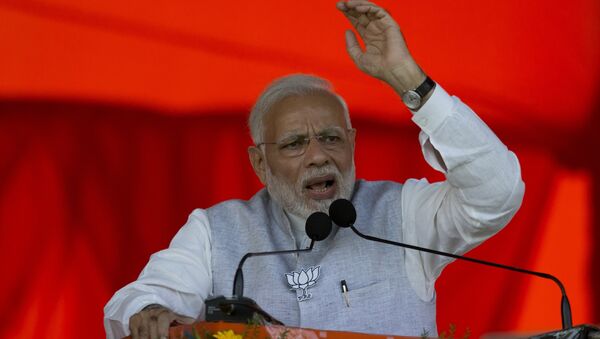In an address to the nation on 8 August, Indian Prime Minister Narendra Modi laid out his reasons for his decision to abolish Article 370, which gave special status to Jammu and Kashmir.
The prime minister insisted that Article 370 did not benefit the people of the state, and only fostered “separatism, corruption, terrorism and family rule.”
"(Article 370) was being used as a tool by Pakistan. 42,000 innocent people were killed," Modi said as quoted by The New Indian Express, adding that Pakistan’s alleged support of terrorism prevented development in Jammu and Kashmir.
He pointed out that residents of Jammu and Kashmir were deprived of the benefits provided by several legislative acts, such as the Right to Education.
Modi said that young people in Jammu and Kashmir would gain a large number of jobs when New Delhi moves to fill up vacant positions in local government in Kashmir.
The Indian government also plans to split the Ladakh region from Jammu and Kashmir and grant it the status of a union territory, which means it would be directly controlled by the federal government. The remainder of the state will become a second union territory. However, the Ladakh region will not have its own legislature, unlike Jammu and Kashmir.
This move prompted clashes on the Indian-Pakistani Line of Control in Kashmir and caused Islamabad to downgrade its diplomatic relations and suspend trade with its neighbour.
Pakistani authorities also announced their decision to ban Indian movies in the country as part of Islamabad’s drive to sever some cultural ties with New Delhi.




